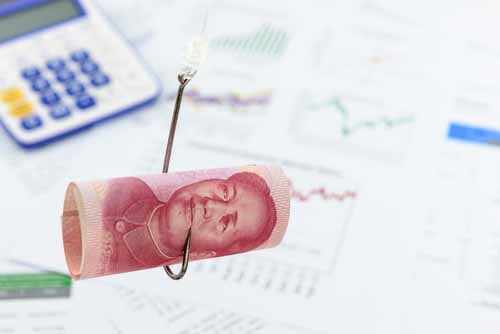Don’t stand by the water and long for fish, go home and weave a net.
This oft-repeated Chinese proverb neatly captures the spirit behind the success of the High Net Worth (HNW) insurance market in China. Its growth was never inevitable: success required both opportunity and ingenuity.
The market for HNW life insurance emerged late in mainland China. Since the mid-1990s, insurers and specialist global insurance brokers have offered high-face-value life insurance policies to clients with a net worth of at least US$1 million. Companies worked with the wealthy to offer policies as a cost-effective component of asset diversification and preservation, tax efficiency, and inter-generational estate planning strategies, and in the last 20 years, the market has expanded rapidly in other areas of Asia. Yet these policies began to be actively promoted in China only in 2014, and as a pioneer in the market, RGA was able to witness the market’s rise first-hand. By 2017, the average sum assured of RGA China’s HNW business reached more than 10 times the amount of normal life policies. RGA’s overall HNW business volume also developed very quickly, achieving strong growth rates in 2018 and 2019.
In many ways, the popularity of HNW solutions in China is unsurprising. The world’s most populous nation enjoys a rapidly expanding pool of private wealth, roughly 40% of which may be held in cash and bank deposits.1 China also is home to among the fastest-growing accumulations of private wealth in modern history, estimated at RMB 165 trillion (US$24 trillion), a six-fold increase since 2006. Only the United States is home to more billionaires, according to an annual “rich list” released by Hurun Report, a Shanghai magazine.
And yet great wealth alone does not seem to be enough to explain the rapid rise of demand in high-face-value life insurance policies. Government support helped create the conditions for success. The People's Republic of China has sought to double total premiums in the insurance industry by the year 2025 to RMB 9.32 trillion, compared with year 20202, and in particular the life insurance sector has benefited from liberalized investment regulations and interest rate caps in the universal life segment, allowing life insurers to repackage universal life (UL) policies into short-term, high-yielding wealth management products.
Underwriting Ingenuity
Smart underwriting strategies play a role. It is essential to tailor financial and medical underwriting rules to local practices, and risk assessment in China requires a far greater emphasis on evidence that can be independently verified. For example, use of an attending physician statement (APS) is uncommon; Chinese insurers prefer medical proof over a medical provider’s claims. RGA requests three years of routine physical exam reports, which may include lab work, ultrasounds, and other medical evidence.
Similarly, a letter from a bank or broker attesting to an applicant’s income, assets, or creditworthiness is not viewed as fully credible in China. Instead, applicants are expected to provide other forms of documentation, such as public company financial statements, income statements, or other forms of evidence that may be less vulnerable to fraud. Underwriters will also review public enterprise websites for verification of ownership, shareholdings, registered capital, and other financial disclosures. Innovations in third-party data have also opened doors. China’s social health and credit scores can be combined with publicly available disclosures to build trust by providing a more complete medical profile of a high net worth applicant.
High net worth individuals both in China and around the globe expect “white glove” underwriting service, which requires significant infrastructure and investment long before it can generate substantial premiums and growth. Against this backdrop, forging partnerships with banks, agencies, and reinsurers with deep local market knowledge makes strategic sense. RGA offers in-depth training based on the company’s decades-long leadership in facultative underwriting. Regular and frequent quality reviews of high net worth cases also can better ensure speed and accuracy.
Rapid Adaptation
The market’s growth can also be traced to several outside forces. While COVID-19 has undoubtedly disrupted business around the world, China’s HNW segment has also benefited from the country’s management of the virus and the economy thus far. The global HNW market is highly competitive, and many mainland Chinese historically have traveled abroad to take advantage of the services of specialist brokers and private banking institutions in financial hubs such as Hong Kong and Singapore. Many HNW clients also have preferred to purchase foreign currency policies.
Amid border closures, tightening of foreign currency controls, and other dislocations, however, more wealthy Chinese are now seeking financial solutions closer to home from domestic providers. In 2020, RGA’s facultative case number at its Shanghai office has increased more than 50%.
China’s more rapid recovery from the pandemic could be fueling HNW growth in other, less expected ways. Routine preventative medical exams have frequently been delayed and canceled to prevent COVID-19 transmission, and consumers have been reluctant to participate in paramedical exams and blood draws for safety reasons. Yet, by mid-year, China was able to bring the spread of the virus under control and reopen many medical centers. As a result, HNW clients have been able to participate in check-ups and deliver medical evidence without the significant delays seen in other regions.
A generational shift in attitudes and priorities among China’s high net worth population may also be opening up new opportunities. Worldwide, high net worth individuals tend to be self-made professionals, entrepreneurs and those who inherit large sums of money, but that may be where the similarities end. With the rapid growth of Chinese companies, especially in the tech sector, private wealth has spread beyond business owners to an expanding class of young, urban, tech-savvy executives and so called “gold collar” highly compensated professionals. According to market research by Bain & Company, these individuals have been more open to seeking outside professional advice and more likely to live outside of large coastal cities. They are also less focused purely on accumulating wealth, and more concerned about preserving it - and passing it on to the next generation. HNW solutions directly address this need and can be customized.
Distribution Insight
Reaching this more receptive population poses unique challenges in China, in part because the market is still relatively young. Traditional broker-based distribution channels, for example, are not as well developed. Instead, insurers largely rely on banks and insurance agencies that have established relationships with HNW clients.
Certain product lines are also far more mature than others. Most high net worth clients purchase preferred life and participating life (dividend bearing) policies.
China’s economy has proved resilient amid the many shocks of 2020, and the wealth boom in the country represents an untapped opportunity for insurers. Still, seizing this market opening requires creating a sturdy net through a combination of local market knowledge and experience built over time.



